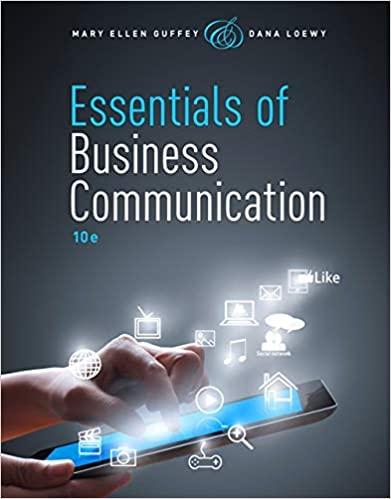Meetings are indispensable when you don't want to do anything, observed the late economist John Kenneth Galbraith.
Question:
"Meetings are indispensable when you don't want to do anything," observed the late economist John Kenneth Galbraith. This sentiment was echoed by Stanford professor Thomas Sowell who declared: "People who enjoy meetings should not be in charge of anything." Finally, management guru Peter Drucker claimed: "Meetings are a symptom of a bad organization. The fewer meetings, the better."
Much venomous ink has been spilled decrying meetings, but they won't go away because-despite their potential shortcomings- many workplace gatherings are necessary.
Your Task. Examine the preceding quotations and perhaps other statements deriding meetings. Are they exaggerations or accurate assessments? If the assertions of wastefulness are true, what does that mean for the health of organizations conducting large numbers of meetings? Individually or as a team, search the Web for information in defense of meetings. Begin by discussing your own and classmates' experience with workplace meetings. Interview your parents, other relatives, and friends about meetings. Finding gripes is easy, but search the Web for advice on making meetings more effective. What information beyond the tips in this book can you find? In a class discussion or individually-perhaps in writing or in an electronic slide presentation if your instructor directs- introduce your findings.
Step by Step Answer:

Essentials Of Business Communication
ISBN: 9781285858913
10th Edition
Authors: Mary Ellen Guffey, Dana Loewy





